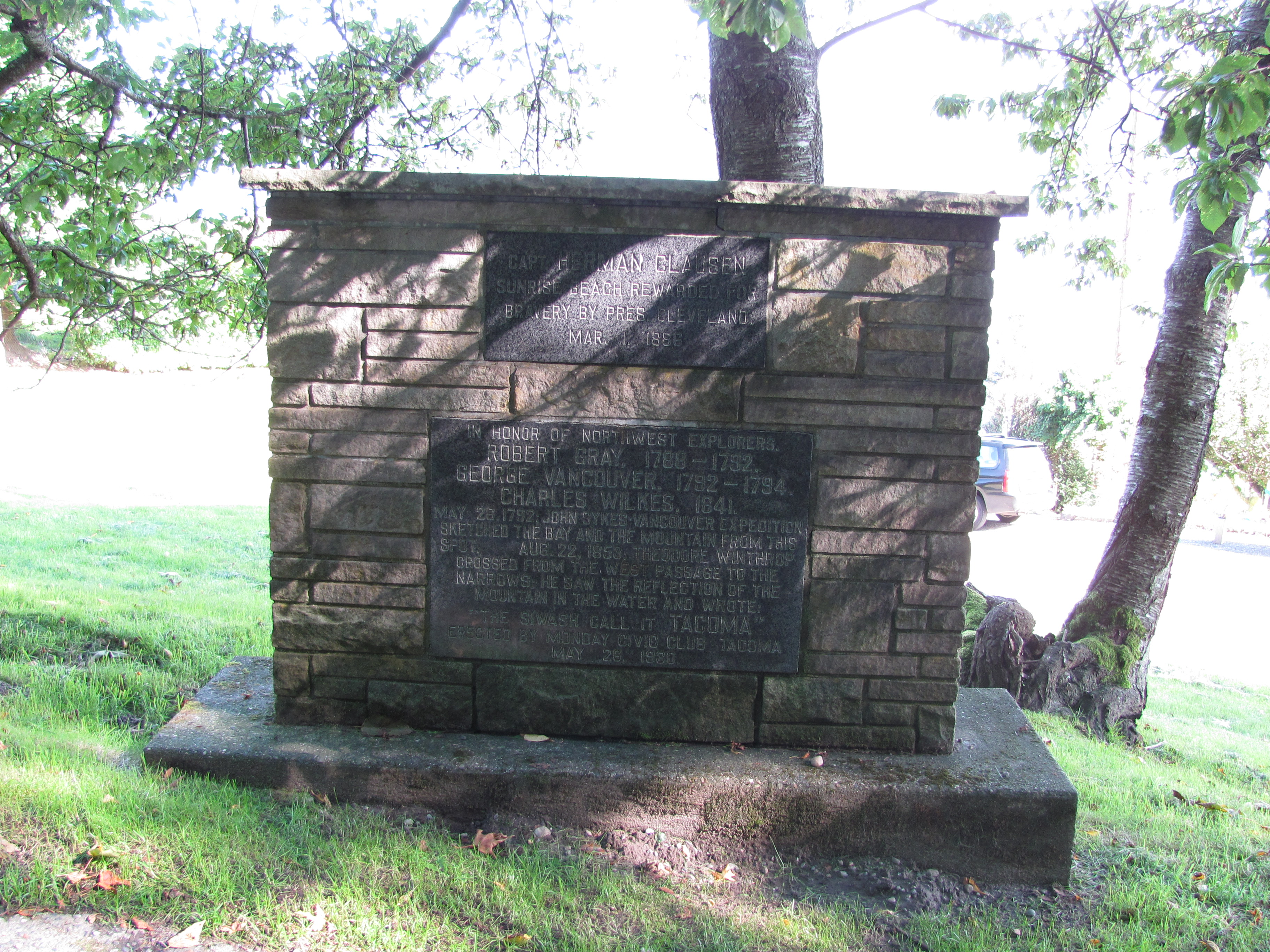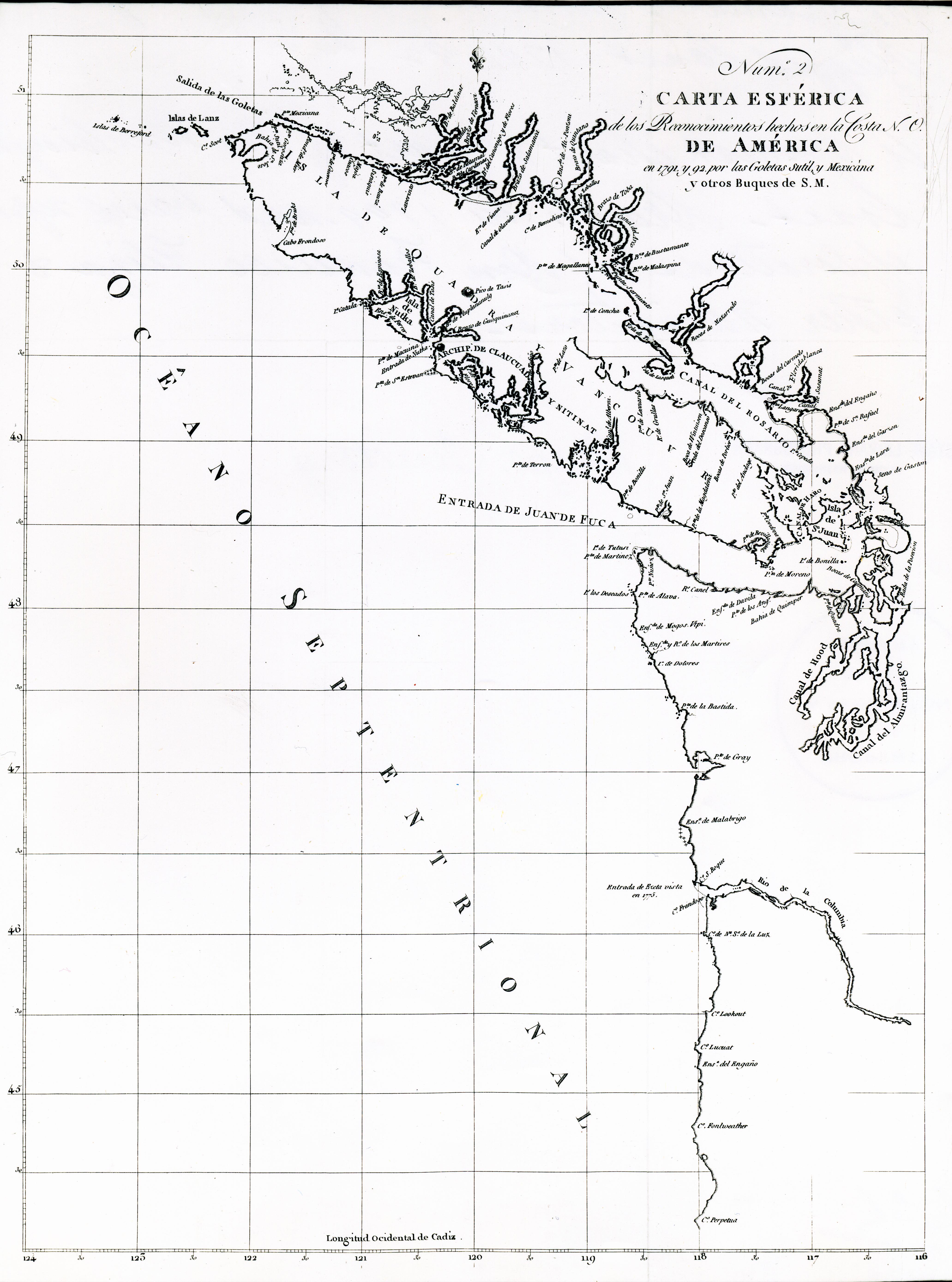VOYAGES OF DISCOVERY...CAPTAIN COOK (no. 5)
Feb 09, 2011
Voyages of Discovery…  Captain Cook The famous British explorer of the 18th century, Captain James Cook, led his 3rd global expedition from England to the Pacific Northwest in 1776-1780. He became the first European to find the Sandwich (present-day Hawaiian) Islands. From Hawaii, the expedition proceeded north, missing the Strait of Juan de Fuca but anchoring off Vancouver Island circa 1778. Despite the lack of cartographical success for present-day Washington from that expedition, Cook’s 3rd voyage was notable as being the first maritime outing to use a new type of clock, which kept such accurate time at sea that the navigators could pinpoint their longitude with a high degree of accuracy. Cook, acting as an early ethnographer, also collected native vocabularies (Maori, Nootka, Unalaskan, Hawaiian) on his 3rd voyage. The expedition had other ramifications and significance for Northwest history. Midshipman George Vancouver participated in Cook’s 2nd and 3rd voyages. He would later lead his own expedition to chart the Pacific Northwest coast.
Captain Cook The famous British explorer of the 18th century, Captain James Cook, led his 3rd global expedition from England to the Pacific Northwest in 1776-1780. He became the first European to find the Sandwich (present-day Hawaiian) Islands. From Hawaii, the expedition proceeded north, missing the Strait of Juan de Fuca but anchoring off Vancouver Island circa 1778. Despite the lack of cartographical success for present-day Washington from that expedition, Cook’s 3rd voyage was notable as being the first maritime outing to use a new type of clock, which kept such accurate time at sea that the navigators could pinpoint their longitude with a high degree of accuracy. Cook, acting as an early ethnographer, also collected native vocabularies (Maori, Nootka, Unalaskan, Hawaiian) on his 3rd voyage. The expedition had other ramifications and significance for Northwest history. Midshipman George Vancouver participated in Cook’s 2nd and 3rd voyages. He would later lead his own expedition to chart the Pacific Northwest coast. 
 Captain Cook The famous British explorer of the 18th century, Captain James Cook, led his 3rd global expedition from England to the Pacific Northwest in 1776-1780. He became the first European to find the Sandwich (present-day Hawaiian) Islands. From Hawaii, the expedition proceeded north, missing the Strait of Juan de Fuca but anchoring off Vancouver Island circa 1778. Despite the lack of cartographical success for present-day Washington from that expedition, Cook’s 3rd voyage was notable as being the first maritime outing to use a new type of clock, which kept such accurate time at sea that the navigators could pinpoint their longitude with a high degree of accuracy. Cook, acting as an early ethnographer, also collected native vocabularies (Maori, Nootka, Unalaskan, Hawaiian) on his 3rd voyage. The expedition had other ramifications and significance for Northwest history. Midshipman George Vancouver participated in Cook’s 2nd and 3rd voyages. He would later lead his own expedition to chart the Pacific Northwest coast.
Captain Cook The famous British explorer of the 18th century, Captain James Cook, led his 3rd global expedition from England to the Pacific Northwest in 1776-1780. He became the first European to find the Sandwich (present-day Hawaiian) Islands. From Hawaii, the expedition proceeded north, missing the Strait of Juan de Fuca but anchoring off Vancouver Island circa 1778. Despite the lack of cartographical success for present-day Washington from that expedition, Cook’s 3rd voyage was notable as being the first maritime outing to use a new type of clock, which kept such accurate time at sea that the navigators could pinpoint their longitude with a high degree of accuracy. Cook, acting as an early ethnographer, also collected native vocabularies (Maori, Nootka, Unalaskan, Hawaiian) on his 3rd voyage. The expedition had other ramifications and significance for Northwest history. Midshipman George Vancouver participated in Cook’s 2nd and 3rd voyages. He would later lead his own expedition to chart the Pacific Northwest coast. England vs. Spain
In 1791, the British Navy sent George Vancouver as commander of a thirteen month voyage from England for the Hawaiian Islands then north to Cape Flattery, the Strait of Juan de Fuca, Puget Sound, the Strait of Georgia, and Queen Charlotte Strait.[1] Vancouver’s expedition had several objectives, including negotiating a peace treaty with Spain over contested territory in the Northwest and continuing the charting of the region, picking up where Cook had left off. Spanish explorers, starting with Balboa in 1513, had claimed the entire Pacific Ocean and all bordering shores for Spain. Despite naming geographical features from the earliest days of European exploration in the Pacific Northwest (i.e., San Juan Islands), Spain’s territorial claims were not substantiated with settlements or forts north of present-day California. Thus, between Cook’s and Vancouver’s visits to the Pacific Northwest, Spain refocused attention on this suddenly contentious region after decades of focusing on southern climes. In 1775, a Spanish expedition by Hezeta and Quadra landed in present-day Washington State and officially claimed the land for their nation.
[1] Sam McKinney, Sailing with Vancouver (Victoria, British Columbia, Canada: TouchWood Editions, 2004), 2, 4-5.




